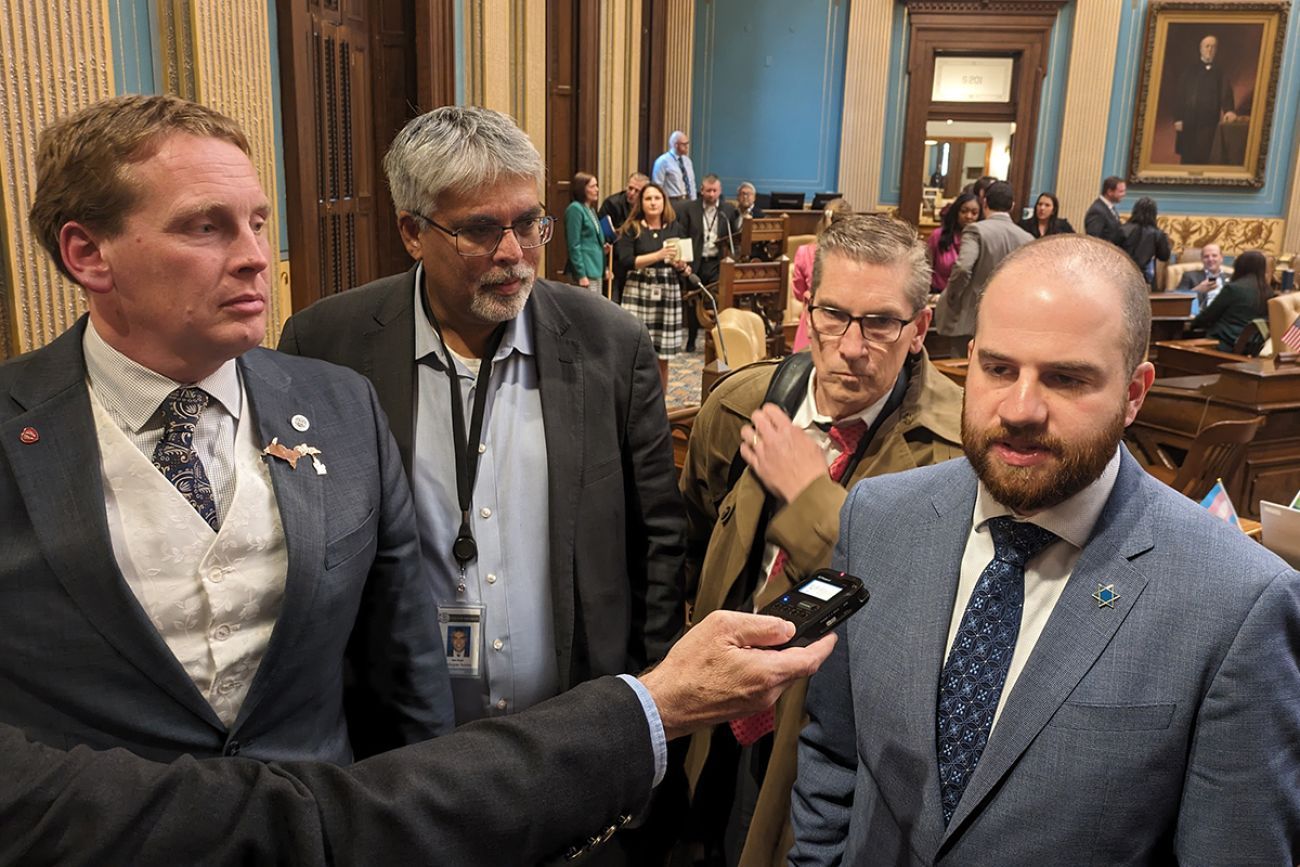Michigan lawmakers propose new transparency push — then call it a year

- A bipartisan plan would subject governor and lawmakers to the Michigan Freedom of Information Act
- Prior efforts have stalled amid opposition from past Senate GOP leaders and Democratic Gov. Gretchen Whitmer
- Michigan is one of two states that exempt both the governor and lawmakers from transparency laws
LANSING — Michigan lawmakers on Thursday introduced legislation that would, for the first time, subject themselves and the governor to public records requests under the state's Freedom of Information Act.
The proposal won't see any action for months, however, because lawmakers held their last votes of the year later Thursday. The Legislature recessed after Democrats temporarily lost their House majority when two members won mayoral races that will force them to leave the chamber.
The bipartisan plan from Democratic Sens. Jeremy Moss of Southfield and Ed McBroom of Vulcan is a modified version of legislation that has passed the state House in prior years but continually stalled before becoming law.
Related:
- Michigan Senate OKs disclosure rules blasted as 'snow job’ to ‘deceive voters’
- Michigan lawmakers OK financial disclosure rules; critics say they fall short
- Michigan Legislature’s Dem majority to adjourn for year over GOP objections
The inaction has left Michigan as one of two states — along with Massachusetts — that exempts both the governor and Legislature from public records request laws that apply to other government officials.
Sponsors say they hope the modified legislation could end decades of gridlock because of it takes a new approach and was developed with input from Senate Majority Leader Winnie Brinks, D-Grand Rapids.
The legislation would put both the governor and lawmakers under the Freedom of Information Act rather than creating a separate law, the Legislative Open Records Act, which would have created a unique appeals process for denied requests outside the court system.
Republican Senate leaders had blocked past attempts to expand the Freedom of Information Act, but Brinks capped the 2023 legislative session by telling reporters on Thursday that she aims to take up the bills next year.
"We wanted to get it introduced now so that we could get to work on that right away," Brinks said, suggesting lawmakers will work to refine the proposal before beginning committee hearings early next year.
The revised proposal, as introduced, could also overcome another roadblock in Gov. Gretchen Whitmer, who opposed prior versions of the legislation because it would have treated her office differently from the Legislature.
Whitmer has not followed through on a 2018 pledge to voluntarily open her office to public records requests, but said last month that she would look forward to signing legislation that treats her office and the Legislature equally.
McBroom, who has worked on the transparency legislation since he was a House member in 2011, said in a statement that both parties have used prior bills for "partisan gamesmanship" but he and Moss are working on the "genuine article."
"While there is still much work to do and issues to work out, these bills – once adopted – can help rebuild the trust and faith our citizens need to have in their state government," he said.
The records bill follow final approval earlier this week of separate legislation that will require Michigan lawmakers, state officials and political candidates to disclose personal financial information each year.
Transparency advocates have criticized loopholes in the conflict-of-interest legislation, including limited disclosure of spousal assets and a continued shield for paid political trips.
Whitmer is expected to sign the reforms.
Michigan has consistently received a failing grade for ethics and transparency laws. It ranked last in the country on those fronts in a 2015 review by the Center for Public Integrity.
See what new members are saying about why they donated to Bridge Michigan:
- “In order for this information to be accurate and unbiased it must be underwritten by its readers, not by special interests.” - Larry S.
- “Not many other media sources report on the topics Bridge does.” - Susan B.
- “Your journalism is outstanding and rare these days.” - Mark S.
If you want to ensure the future of nonpartisan, nonprofit Michigan journalism, please become a member today. You, too, will be asked why you donated and maybe we'll feature your quote next time!




